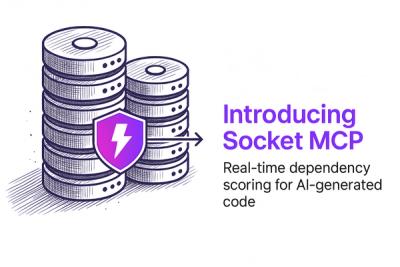uriAnchor
Use libraries, not frameworks
This is a library that strives to be best-in-class.
If you are considering using an SPA framework, please read Do you
really want an SPA framework? first.
Overview
Make your application bookmarks, browser history, the back button,
and the forward button act just as the user expects while enabling you
to update only the part of the page that has changed. This jQuery
plugin helps you do this by making the URI Anchor (or hash fragment,
as others call it) your application state API.
Use this plugin to manage dependent and independent variables in the hash
fragment of the URI. It has been designed and updated over five commercial
SPA projects and is featured in the book book
Single Page Web Applications - JavaScript end-to-end
which is available from Amazon and directly from Manning.
Preferred listener
The preferred listener to use with URI Anchor is hashchange, like so:
// jQuery
$(window).bind( 'hashchange', onHashChange );
// Native
window.onhashchange( onHashChange );
Example implementation
See a full example, clone the SPA listings,
dereference a copy of the 6.5 listings, and then open the web page. Like so:
cd spa/listings/ch05-06
cp -aL 6.5 6.5dr
cd 6.5dr
google-chrome spa.html
You must log in -- any user name will work -- to open and close the chat window and activate the avitars.
Methods
$.uriAnchor.setAnchor
Purpose
Sets Anchor component of the URI from a Map.
The Anchor component is also known as the 'hash fragment' or 'bookmark component'.
Arguments
Arguments are positional:
- 1 (
anchor_map ) : The map to be encoded to the URI anchor
- 2 (
option_map ) : A map of options
- 3 (
replace_flag ) : A boolean flag. When true, the method replaces the URI so that prior URI is not entered into the browser history
Environment
Expects the document.location browser object
Settings
none
Returns
boolean: true on success, false on failure
Throws
none
Details
The first positional argument, anchor_map, may be a simple map:
$.uriAnchor.setAnchor({
page : 'profile',
slider : 'confirm',
color : 'red'
});
This changes the URI anchor to:
#!page=profile&slider=confirm&color=red
All these arguments are independent, that is, they can vary
independent of each other. We also support dependent values -
values that depend on others.
An independent argument key has no _ prefix. The same key name,
prefixed by an _, holds the arguments that are dependent on
an independent argument. The dependent key always points
to a map. Consider:
$.uriAnchor.setAnchor({
page : 'profile',
_page : {
uname : 'wendy',
online : 'today'
}
});
This changes the URI Anchor to:
#!page=profile:uname,wendy|online,today
Only independent keys and their matching dependent keys are
processed. All other keys are ignored. Importantly, this includes
keys of the form _s_<key> ( e.g. _s_page ) returned by makeAnchorMap
Setting a more complex anchor map is illustrated below:
$.uriAnchor.setAnchor({
page : 'profile',
_page : {
uname : 'wendy',
online : 'today'
},
slider : 'confirm',
_slider : {
text : 'hello',
pretty : false
},
color : 'red'
});
This sets the URI Anchor to:
#!page=profile:uname,wendy|online,today&slider=confirm:text,hello\
|pretty,false&color=red
Options: The second positional argument tp this method, option_map,
provides a number of options for delimiters:
delimit_char : Delimiter between independent args. Default is &.delimit_kv_char: Delimiter between key and value of independent args. Default is =.sub_delimit_char : Delimiter between independent and dependent args. Defaults is :.dep_delimit_char : Delimiter between key-value pairs in dependent args. Default is |.dep_kv_delimit_char : Delimiter between key and value of dependent args. Default is ','
Boolean values ( as part of a key-value pair ) are convert into the stings 'true' or 'false'.
Validation:
As of 1.0, the ability to optionally check the validity of the
Anchor against a schema has been included. Since we don't expect
the allowable schema to change during run-time, we use a
module configuration to set the schema, like so:
$.uriAnchor.configModule({
schema_map : {
page : { profile : true, pdf : true },
_page : {
uname : true,
online : [ 'today','yesterday','earlier' ]
},
slider : { confirm : 'deny' },
_slider : { text : 'goodbye' },
color : { red : true, green : true, blue : true }
}
});
This check occurs only during setting of the Anchor, not
during its parsing ( See makeAnchorMap )
The replace_flag instructs the routine to replace the URI,
discarding browser history
$.uriAnchor.makeAnchorMap
Purpose
Parses URI anchor and returns as map
Arguments
none
Environment
Expects the document.location browser object
Settings
none
Returns
Map
Throws
none
Details
Parses the browser URI anchor into a map using the same
rules used to set the anchor in the method setAnchor
( see above ).
This method creates an additional key type, _s_<independent_arg>
for each independent argument with dependent arguments.
These keys point to a string representation of the independent
argument along with all its dependent arguments.
These values are ignored by setAnchor, but they are useful
for routines using setAnchor to check if a part of the anchor
has changed.
Example
If the browser URI Anchor looks like this:
#!page=profile:uname,wendy|online,true&slider=confirm:text,hello\
|pretty,false&color=red
Then calling $.uriAnchor.makeAnchorMap(); will return a map that looks like so:
{ page : 'profile',
_page : {
uname : 'wendy',
online : 'true'
},
_s_page : 'profile:uname,wendy|online,true',
slider : 'confirm',
_slider : {
text : 'hello',
pretty : false
},
_s_slider : 'confirm:text,hello|pretty,false',
color : 'red'
};
Release Notes
Copyright (c)
2013 Michael S. Mikowski (mike[dot]mikowski[at]gmail[dotcom])
License
Dual licensed under the MIT or GPL Version 2
http://jquery.org/license
Versions 1.1.0-3
These are the first releases registered with jQuery plugins.
Versions 1.2.0-2, 1.3.0-1
Updated documentation, fixed minor bug.
Version 1.3.2
Added example to show use of hashchange listener.
Version 1.3.3
Added changeAnchorPart example code
TODO
Reconsider the structure of dependent and indepent variables
Contribute!
If you want to help out, like all jQuery plugins this is hosted at
GitHub. Any improvements or suggestions are welcome!
You can reach me at mike[dot]mikowski[at]gmail[dotcom].
END



